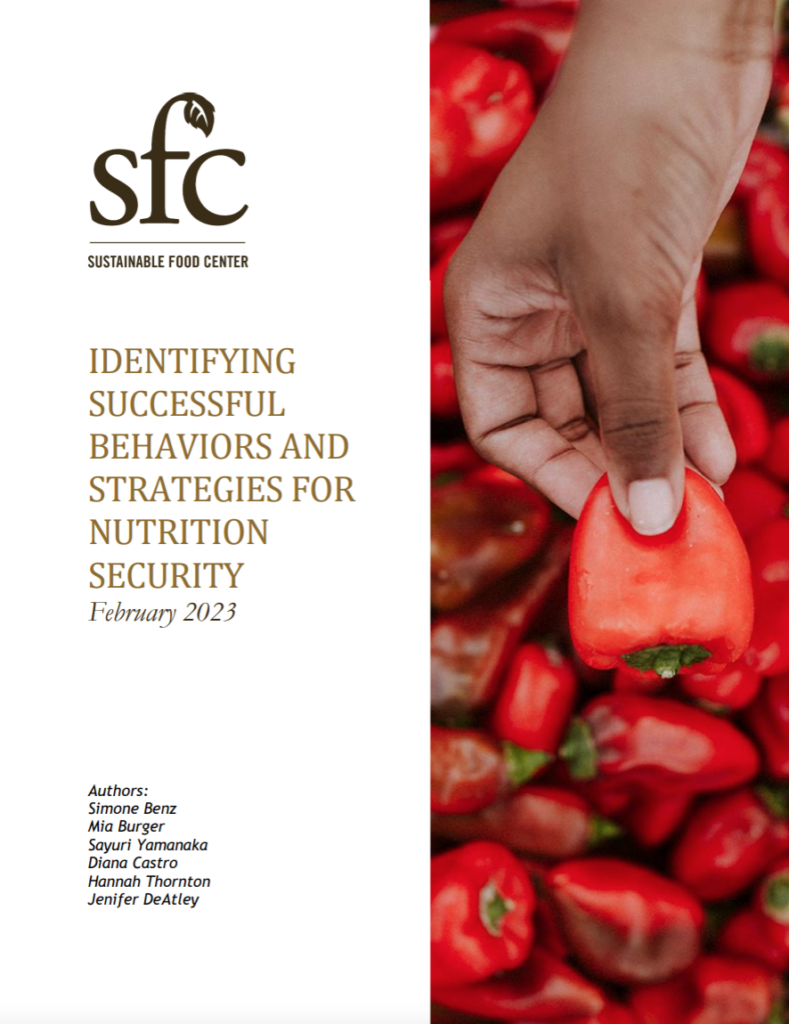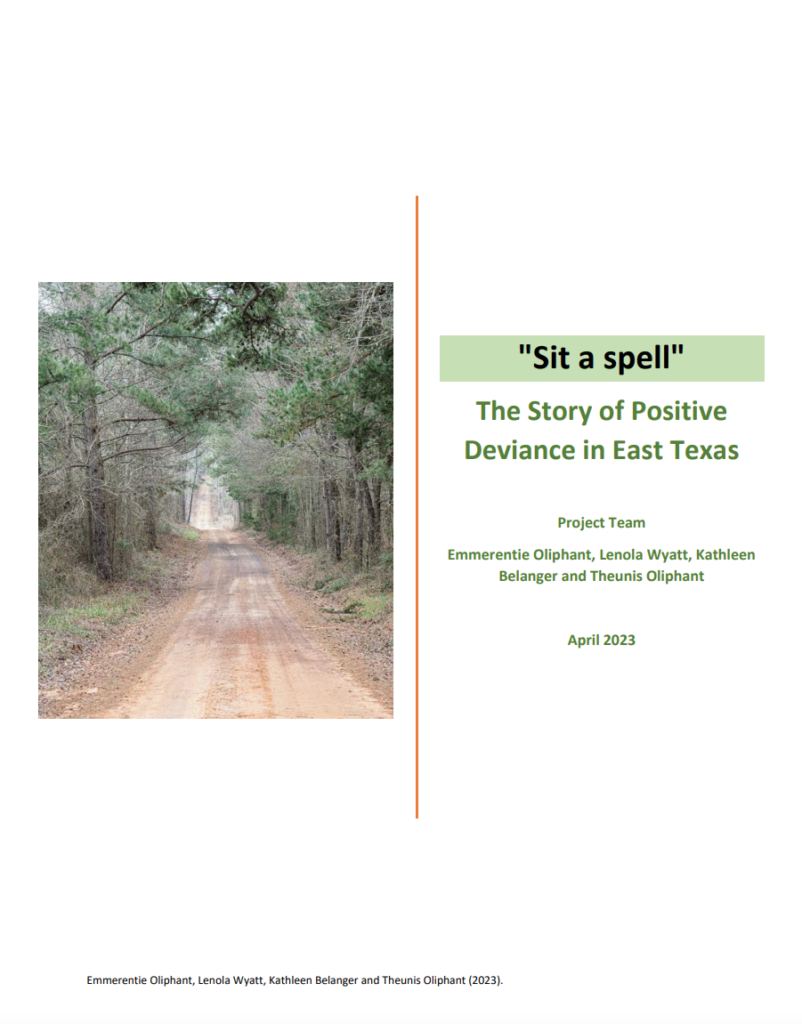
Food is garnering much attention from health and health care systems as a means to achieve better health. Research has shown that affordable access to healthy food is a key non-medical driver of health.
Aetna Better Health Texas approached EHF to learn firsthand from communities impacted by food insecurity. Centering people with lived experience, we wanted to know – “What if we look for solutions to food security that already exist within communities?”
The Sustainable Food Center in Austin and a coalition from East Texas took the lead in their communities. Each effort produced a community-focused report aimed at identifying locally-effective strategies for household food and nutrition security that can be considered by Texas Medicaid health insurance plans, medical providers, community clinics, philanthropic organizations, public sector agencies, and many others seeking to invest in sustainable solutions for food security.
Each report was based on the concept of positive deviance. Rather than diagnosing a problem and seeking solutions, the positive deviance approach inspires researchers to seek, uplift, and amplify community-based practices and behaviors in program and policy interventions.
EHF sees this partnership as one to watch—centering those who are experiencing health challenges in identifying solutions.

